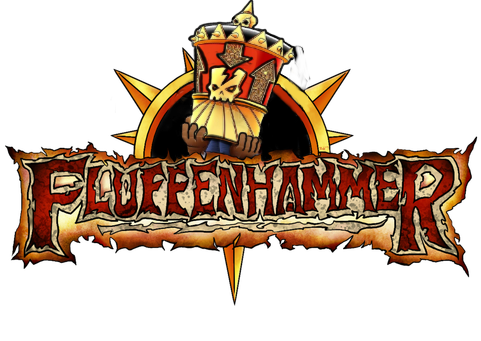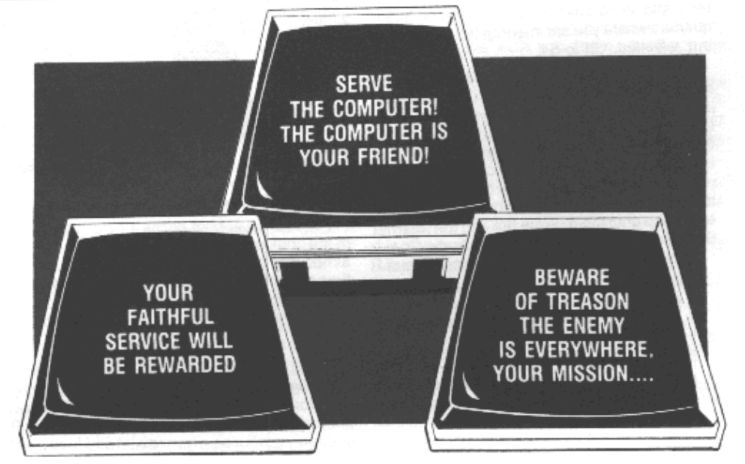Sunday Musings - Paranoia
As always, the idea behind a Sunday Musings is that Adam takes a concept and times an hour and a half to write it in. This week, we get paranoid.....
Paranoia was dropped into the world against a backdrop of Miner’s Strikes and Cold War fear back in the year 1984. Set in an arcology sealed away from the world at large after the downfall of civilisation, Alpha Complex is run by The Computer, or Friend Computer, who tasks the players to be “Troubleshooters”, and to either find and destroy threats to The Computer and Alpha Complex or to do jobs of maintenance and clean-up. The core concept and central joke is one of a mad AI that can see enemies crawling out of the metalwork, naming such imaginary nemesis’s Mutants or worst of all… Communists. Of course, the players are all secretly one of the above, or are part of an outlawed secret society which ties into an RPG that walks the line between deeply unsettling and outright daft.
On top of this somewhat ridiculous setting sits the missions which are often incorrect, wrong, full of lies and half truths and on multiple occasions, completely absurd. The world of Paranoia is one built on lies and half remembered histories, and any deviation from the agreed thinking is met by being named a Communist and summary execution. This layer adds a whole other metagame to the proceedings. What can I say? What can I do? If a player is seen as a traitor and so murdered by his fellows, Friend Computer may not want me dead…
Paranoia gives each player six clones which gives a sense of being able to explore with some freedom, but that sense of self-preservation is never far from the mind of the player as they descend into the madness, with perhaps some hope of tripping up a fellow player as they are busy musing the same goals.
Paranoia is a competitive experience in a way few other RPGs have managed to successfully manage. It was built as both a competitive experience as well as a story telling one, with the GM both being the person moving the narrative forward, and as a massive trap that is waiting to snap shut on the players. There is a large amount of gamers out there that found, and likely still do, that Paranoia’s bundle of bumbling betrayals were something impenetrable. It is confrontational at it’s core, with layer upon layer of black humour, NPC’s and sinister puns. It takes multiple plates spinning as a GM to make the whole work as a game, but if everyone can get on board with the feel of Paranoia, it makes for a game unlike any other. It’s a one and done experience even though it does have rules for longer campaigns (that to my experience, fizzle out rather quickly).
There is a political throughline in Paranoia that I would be remiss to not mention as between all the pratfalls and madness, lies a satire that takes aim directly at the political landscape of the time, and that feels unsettlingly familiar in today’s world. It is built up with the bricks of commentary designed and dedicated to considering such thoughts and serve that that particular master well. As a ruleset, it is deceptively simple to pick up, but underneath such stats and concepts there is something that needs subtlety to be able to flourish. The GM needs to understand what it is they is unfolding beyond the screen, and the players need to be certain of the tone happening behind it. Without that knowledge and forethought, Paranoia can easily descent into wackadoodle clown shoes and wear thin quickly, and to remove the frills and commentary of the game leaves a very bare bones pastiche of things seen multiple times before. There’s a tightrope to walk here but if it can be pulled off, and I have seen that done many a time, it is a wonderous experience unlike any other.





